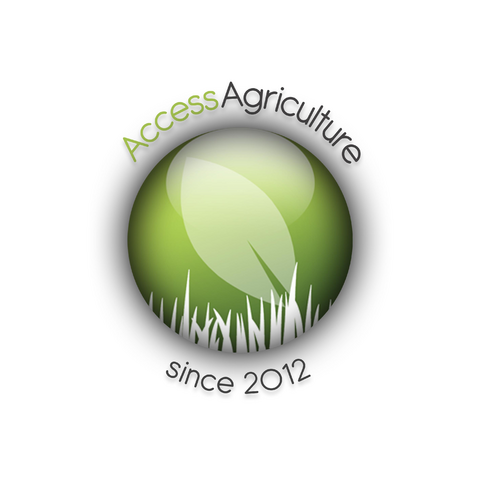
16.1K
Downloads
474
Episodes
Access Agriculture is a non-profit organisation that showcases agricultural training videos in local languages. We strive to promote the transition towards agroecology and organic farming across the global South. To impact on rural livelihoods, please explore Access Agriculture.
Access Agriculture is a non-profit organisation that showcases agricultural training videos in local languages. We strive to promote the transition towards agroecology and organic farming across the global South. To impact on rural livelihoods, please explore Access Agriculture.
Episodes
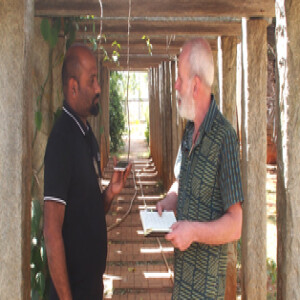
Thursday May 25, 2023
Nurturing a love of nature and gardening in kids
Thursday May 25, 2023
Thursday May 25, 2023
Audio podcast of Paul Van Mele, Access Agriculture Co-founder and International Director, speaking with Naresh N.K., Senior Administration Assistant at the University of Trans-Disciplinary Health Sciences and Technology (TDU), in Bengaluru, Karnataka, India, who is involved in a joint Access Agriculture-TDU study on the impact of Access Agriculture farmer-to-farmer training video on improved dairy farming practices. In this audio podcast, Naresh speaks about his successful experience in growing many types of vegetables in his terrace garden without the use of chemicals. He also recounts how his passion for natural farming, which attracts many beneficial birds and insects, has inspired his 4-year-old son to follow in his footsteps.
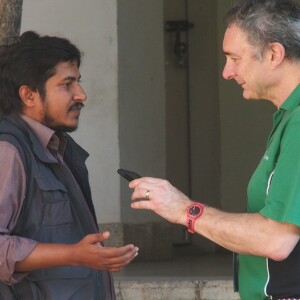
Monday Apr 17, 2023
Monday Apr 17, 2023
Audio podcast of Access Agriculture Co-founder Phil Malone in conversation with Neeraj Kumar, Co-founder of Khetee, an NGO in Bihar, India, on his experience as Access Agriculture’s Entrepreneur for Rural Access (ERA).
Related links:
Blog: Young entrepreneur brings smart farmer learning to Bihar, India
https://www.accessagriculture.org/blogs/young-entrepreneur-brings-smart-farmer-learning-bihar-india
Video: Entrepreneurs for Rural Access
https://www.ecoagtube.org/content/entrepreneurs-rural-access-india-0
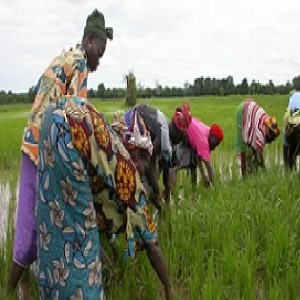
Monday Mar 20, 2023
Effective weed management in rice (Summary)
Monday Mar 20, 2023
Monday Mar 20, 2023
Effective weed control can increase yields by more than 50%. As a farmer it is therefore worthwhile taking a closer look. In this podcast you can learn how to control weeds most effectively.
Download the full audio podcast in different languages at : www.AccessAgriculture.org
Available languages :
Arabic | Ateso | Bangla | Bariba | Burmese | Chichewa / Nyanja | English | Fon | French | Fulfulde (Cameroon) | Ghomala | Hindi | Kannada | Kinyarwanda / Kirundi | Kiswahili | Luganda | Lugbara | Luo (Uganda) | Peulh / Fulfuldé / Pulaar | Runyakitara | Telugu | Tumbuka | Wolof | Yao
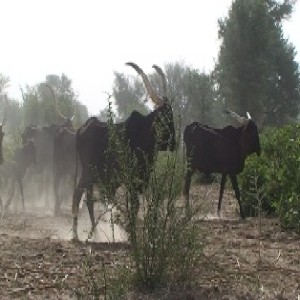
Thursday Mar 02, 2023
Animals & trees for a better crop (Summary)
Thursday Mar 02, 2023
Thursday Mar 02, 2023
In semi-arid West Africa, farmers and herders explain why and how trees and livestock play a crucial role in obtaining a productive soil and crop. In Niger and Ghana this is one of the strategies of integrated striga and soil fertility management that has a positive effect across agroclimatic zones.
Download the full audio podcast in different languages at : www.AccessAgriculture.org
Available languages :
Amharic | Arabic | Ateso | Bambara | Bariba | Bemba | Bomu | Buli | Chichewa / Nyanja | Chitonga / Tonga | Dagaare | Dagbani | Dendi | English | Frafra | French | Fulfulde (Cameroon) | Gonja | Hausa | Hindi | Kannada | Kanuri / Kanouri | Kikuyu | Kinyarwanda / Kirundi | Kiswahili | Kusaal | Luo (Uganda) | Mooré | Nago | Ngakarimojong / Karamojong | Peulh / Fulfuldé / Pulaar | Portuguese | Serer | Sisaala | Spanish | Tamil | Telugu | Wolof | Zarma
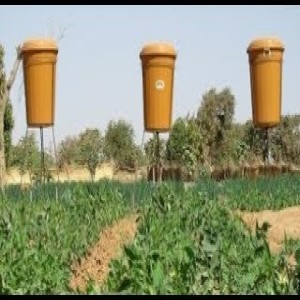
Wednesday Mar 01, 2023
Drip irrigation for tomato (Summary)
Wednesday Mar 01, 2023
Wednesday Mar 01, 2023
Farmer groups and individuals in Burkina Faso explain the benefits and challenges of a low-cost drip irrigation system, and show how such a system is set up. A social innovation is included that relates to organic matter management.
Download the full audio podcast in different languages at : www.AccessAgriculture.org
Available languages :
Adja | Bambara | Bangla | Bariba | Buli | Chichewa / Nyanja | Chitonga / Tonga | Dagaare | Dagbani | Dioula | Español | Ewe | Fon | Frafra | Francés | Gonja | Gourmantche | Hausa | Hindi | Idaatcha | Inglés | Kabyé | Kannada | Kanuri / Kanouri | Kinyarwanda / Kirundi | Kiswahili | Kusaal | Lobiri | Luganda | Moba | Mooré | Persa / Farsi | Peulh / Fulfuldé / Pulaar | Portugués | Sisaala | Telugu | Tumbuka | Wolof | Yoruba | Zarma | Árabe
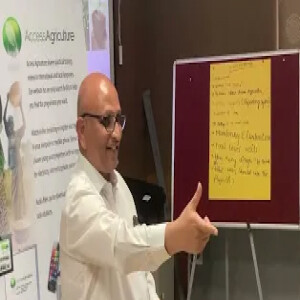
Thursday Feb 16, 2023
Thursday Feb 16, 2023
Dr. P. Chandra Shekara, Director General, National Institute of Agricultural Extension Management (MANAGE),
delivering keynote address at the Access Agriculture training programme of young rural entrepreneurs and key partners, 23-25 January 2023, in Hyderabad, Telangana, India.
For more information : https://www.accessagriculture.org/Access_Agriculture_MANAGE
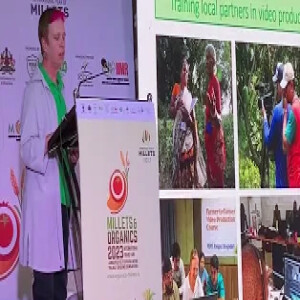
Thursday Feb 16, 2023
Josephine Rodgers speaking at the Millets & Organics International Trade Fair 2023
Thursday Feb 16, 2023
Thursday Feb 16, 2023
Josephine Rodgers, Executive Director, Access Agriculture,
speaking on ‘Scaling Organic and Ecological Farming through Entrepreneurs' at the 'Millets & Organics International Trade Fair 2023,' 20-22 January 2023, in Bengaluru, Karnataka, India.
For more information : https://www.accessagriculture.org/Millets_Organics_International%20_rade_Fair_2023
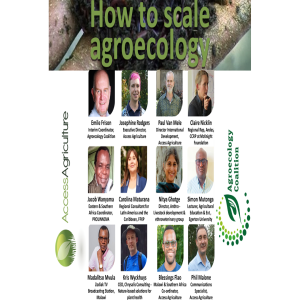
Thursday Oct 27, 2022
How to scale agroecology
Thursday Oct 27, 2022
Thursday Oct 27, 2022
Special webinar marking the 10th anniversary of Access Agriculture
(Organised by Access Agriculture and the Agroecology Coalition)
25 October, 11.00 AM GMT / UTC
As part of its 10th anniversary celebration this year, Access Agriculture (www.accessagriculture.org) organised a webinar on “How to scale agroecology” on 25 October 2022, in partnership with the Agroecology Coalition (www.agroecology-coalition.org).
Since it started in 2012, Access Agriculture’s video-led learning approach has reached an estimated 90 million people, mainly smallholder farmers, in over 100 countries, enabling them to learn about agroecological principles, leading to improved rural livelihoods and sustainable food systems. The organisation is filling a unique and valuable niche in supporting horizontal farmer-to-farmer learning and the scaling of agroecology across the Global South.
The Agroecology Coalition vision envisages an inclusive food system based on the principles of agroecology. The Coalition is a major outcome of the UN Food Systems Summit held in September 2021, and has already over 113 members (39 countries and 74 organisations), committed to making agroecological transitions a widespread reality.
The objectives of the webinar were to celebrate the achievements of Access Agriculture in the last 10 years and help shape its future strategy as a global service provider and scaling agent to help mainstream agroecology and transition towards more resilient food systems.
The webinar featured an eclectic line-up of distinguished speakers and panelists, including representatives from the Agroecology Coalition, FAO Family Farming Knowledge Platform, ANTHRA, Collaborative Crop Research Program (CCRP) at McKnight Foundation, PROLINNOVA, academia, community radio and TV stations, in addition to Access Agriculture.
How to scale agroecology
https://youtu.be/j21LcQkscoA
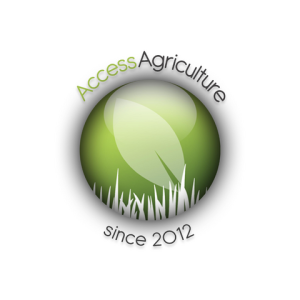
Saturday Oct 15, 2022
Reaching the unconnected through digital empowerment
Saturday Oct 15, 2022
Saturday Oct 15, 2022
As part of the FAO Science and Innovation Forum 2022 side events, Access Agriculture and IFOAM Asia jointly organised a webinar “Reaching the unconnected through digital empowerment” on Friday 14 October 2022, 08:00 AM GMT (10:00 AM CEST).
Sharing knowledge on agroecology and organic farming between communities across the Global South is vital to cope with changes and crises. Small farmers, in particular rural women and youth, living, in remote areas have limited access to relevant information and knowledge on ecological practices. To help such farmers, a growing network of young rural entrepreneurs across Africa and Asia are using solar-powered smart projectors to show quality farmer-to-farmer training videos in local languages in remote areas where there is no electricity or internet.
The side event focused on how youth empowerment, combined with the power of digital technology, can be a powerful force to connect people from remote communities and contribute to the creation of more inclusive and sustainable food systems.
Title of the Session and Speakers
Welcome remarks
Speaker: Jane Nalunga, Entrepreneur Coach Coordinator, Access Agriculture
Reaching the unconnected through digital empowerment
Speaker: Josephine Rodgers, Executive Director, Access Agriculture
Youth as future leaders in the organic sector
Speaker: Julia Lernoud, Vice President of IFOAM - Organics International
Value of digital skills and tools for agricultural entrepreneurship – Perspective from a young changemaker from India
Speaker: Kumar Neeraj, Founder of Khetee and Access Agriculture ERA from India
Value of digital skills and tools for agricultural entrepreneurship – Perspective from a young changemaker from Kenya
Speaker: Maureen Njeri Maina, Field Trainer at Schools and Colleges Permaculture (SCOPE) and Access Agriculture ERA from Kenya
Q & A Session
Moderator: Blessings Flao, Malawi & Southern Africa Co-ordinator, Access Agriculture
Wrap-up and Concluding remarks
Speaker: Phil Malone, Communications Specialist, Access Agriculture, Global South,
Website https://www.accessagriculture.org/
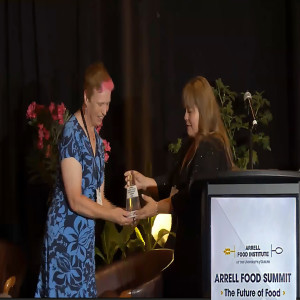
Saturday Jun 11, 2022
Saturday Jun 11, 2022
On 7 June 2022, the Access Agriculture team received the 2022 Arrell Global Food Innovation Award in the category of Community Engagement Innovation in Toronto, Canada. The team comprised Josephine Rodgers, Executive Director; Paul Van Mele, Director for International Development; and Jane Nalunga, Coordinator of the Rural Entrepreneur Programme, who joined the event remotely.
“Local indigenous languages and indigenous knowledge really are at the core of what Access Agriculture does,” said Josephine Rodgers, accepting the Award. She emphasised that sharing knowledge between communities across countries is vital to cope with changes and crises. “We are partway through the UN Decade of Family Farming and in the first year of the UN Decade of Indigenous Languages, and we aim to make both count.”
The Arrell Global Food Innovation Awards recognise global excellence in food innovation and community impact. The Awards are adjudicated by a group of internationally respected scientists and community activists.
Handing over the Award, Adrianne Xavier, Acting Director, Indigenous Studies Programme at McMaster University, who served as an adjudicator of the 2022 Awards, remarked, “The Access Agriculture video resources provide information and relevant content to farmers in small communities, which is critical to local food systems in the Global South.”
The Award ceremony was held during the 5th Annual Arrell Food Summit, which bought together food leaders and experts to co-create solutions and discuss how to work together to ensure a healthy and resilient future of food.
In keeping with the Summit’s focus and Access Agriculture’s vision, Paul Van Mele said, “We try to strengthen farmers’ knowledge, but also society at large to produce, process and consume food with greater respect for nature and local culture. This award is a recognition of the contribution of our staff and the hundreds of partners, who make use of our videos to train farmers in their own communities to promote agroecology and regenerative farming.”
The Award panel highlighted that Access Agriculture was selected for its model, outreach, and delivery of training videos in local languages, along with the engagement created at the community level, all of which contributes to healthier and more resilient food systems.
Thanking the panel for its support and encouragement, Jane Nalunga said, “This is a great recognition of the young people, who are providing services to remote rural communities across Africa and now in South Asia too, using solar powered smart projectors to show videos of farmers inspiring other farmers in local languages. We are delighted to be recognised and aim to expand our activities with these wonderful rural people.”
Related links:
Video podcast : Access Agriculture receives 2022 Arrell Award
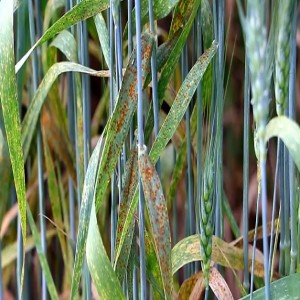
Tuesday Oct 12, 2021
Managing rust diseases in wheat and barley (Summary)
Tuesday Oct 12, 2021
Tuesday Oct 12, 2021
Rust diseases spread through wind and can rapidly develop in cool, wet weather. To know if your crop has rust disease, rub over the infected plant part to see if a yellow, brown or black powder sticks to your fingers. By combining organic methods, you will be able to grow a healthy crop, produce more and make more profit.
Download the full audio podcast in different languages at: www.accessagriculture.org
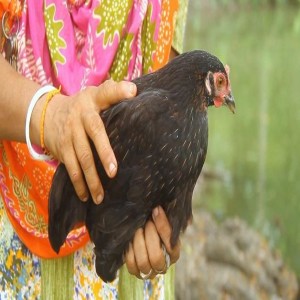
Monday Oct 11, 2021
Increasing production of local chickens (Summary)
Monday Oct 11, 2021
Monday Oct 11, 2021
Local chickens often produce few chicks because of various reasons. To improve both eggs and chick production, there are some simple measures you can take. By producing more local, healthy chickens, you can better feed your family and make some money.
Download the full audio podcast in different languages at: www.accessagriculture.org
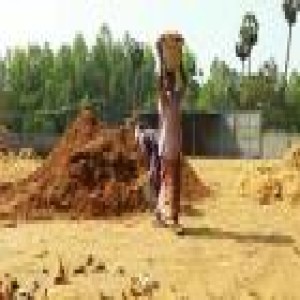
Friday Oct 08, 2021
Coir pith (Summary)
Friday Oct 08, 2021
Friday Oct 08, 2021
Coir pith degrades so slowly that it is often considered useless for agriculture. But well-decomposed coir pith can absorb five times its weight in water. So when applied to your soil, it can hold water much better. To prepare compost out of coir pith you need to break down the lignine. This can be done by good microbes.
Download the full audio podcast in different languages at: www.accessagriculture.org
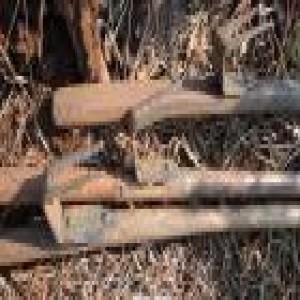
Thursday Oct 07, 2021
Cassava harvest made easier (Summary)
Thursday Oct 07, 2021
Thursday Oct 07, 2021
Ensure your soil is rich in organic matter and grow a legume intercrop to help keep your soil loose. Plant your cuttings horizontally or at a slant so the roots grow closer to the surface. With a simple tool you can uproot your cassava twice as fast.
Download the full audio podcast in different languages at: www.accessagriculture.org
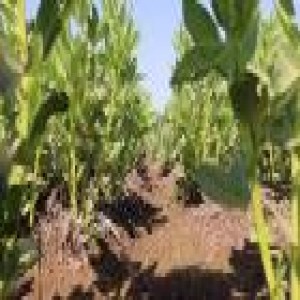
Tuesday Oct 05, 2021
Stronger plants with raised beds (Summary)
Tuesday Oct 05, 2021
Tuesday Oct 05, 2021
Raised beds must be 20 to 30 centimetres high, 80 to 100 centimeters wide and the furrows 30 to 40 centimeters wide. The beds can be 50 to 100 meters long depending on the slope of the field. Because the beds are wide, water is channelled faster through the land, while seeping into the soil and reaching the roots of the crop directly.
Download the full audio podcast in different languages at: www.accessagriculture.org
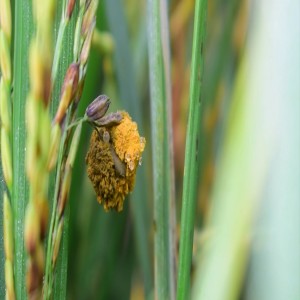
Monday Oct 04, 2021
Managing false smut of rice (Summary)
Monday Oct 04, 2021
Monday Oct 04, 2021
By applying a range of agroecological practices, you can avoid disease infestation in your rice crop.
Download the full audio podcast in different languages at: www.accessagriculture.org
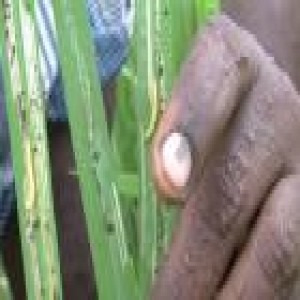
Friday Oct 01, 2021
Managing the rice leaf folder (Summary)
Friday Oct 01, 2021
Friday Oct 01, 2021
By combining different organic methods, you will harvest a lot more rice and make more money.
Download the full audio podcast in different languages at: www.accessagriculture.org
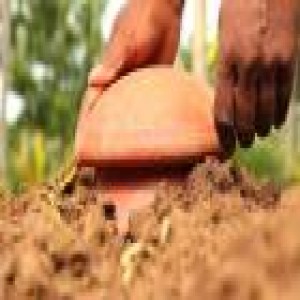
Thursday Sep 30, 2021
Pitcher irrigation (Summary)
Thursday Sep 30, 2021
Thursday Sep 30, 2021
With pitcher irrigation, round porous clay pots are buried into the soil near the crop and filled with water. The water seeps out slowly through the porous walls of the pot and reaches the roots of the plants. As the plants consume the water, more water will seep out from the pot. In this way, the pot provides exactly the right amount of water needed for the plants.
Download the full audio podcast in different languages at: www.accessagriculture.org
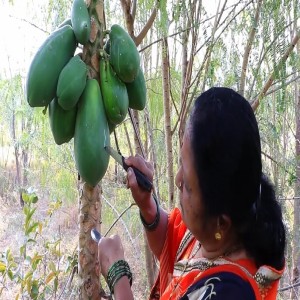
Wednesday Sep 29, 2021
Natural ways to keep chickens healthy (Summary)
Wednesday Sep 29, 2021
Wednesday Sep 29, 2021
Dirty drinking water, unclean surroundings, and improper food cause many diseases in chicken. Clean the coop area and remove the poop and spoiled feed every day. You can purify the drinking water with turmeric powder or potassium permanganate. Feed chickens a balanced diet. Add some garlic or onion to the feed to build up their immunity. Leaves of bitter medicinal plants help to prevent intestinal parasites. Deworm the chickens with the help of papaya sap, betel nut or pomegranate fruit peel. Prevent calcium deficiency by giving the chickens some lime or crushed eggshell. Tie a small bouquet of aromatic leaves in the hen house to repel external parasites.
Download the full audio podcast in different languages at: www.accessagriculture.org
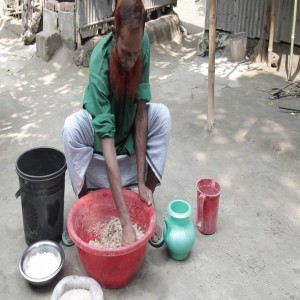
Tuesday Sep 28, 2021
Fattening sheep and goats (Summary)
Tuesday Sep 28, 2021
Tuesday Sep 28, 2021
Usually, farmers fatten male sheep and goats because they grow faster. To fatten the animals, it is important to find the right animals. To fatten sheep and goats, also give them protein rich feed for about 3 to 6 months. Along with good food, you must also make sure that the animals are kept in a healthy environment. Vaccinate and give them deworming tablets every three months to help keep them healthy.
Download the full audio podcast in different languages at: www.accessagriculture.org
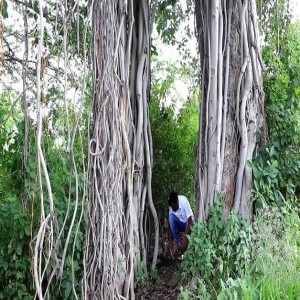
Monday Sep 27, 2021
Organic biofertilizer in liquid and solid form (Summary)
Monday Sep 27, 2021
Monday Sep 27, 2021
For healthy crops you need a healthy soil, because a healthy soil contains many good microbes and earthworms. To prepare biofertilizer for half a hectare, you need 10 kg fresh cow dung, cow urine, flour from chickpeas or another pulse, jaggery or unrefined sugar, and a handful of healthy soil.
Download the full audio podcast in different languages at: www.accessagriculture.org
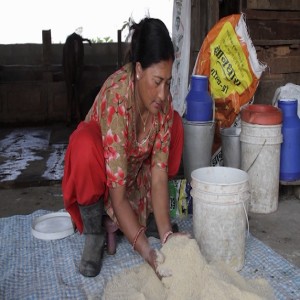
Wednesday Sep 22, 2021
Making balanced feed for dairy cows (Summary)
Wednesday Sep 22, 2021
Wednesday Sep 22, 2021
Based on how much milk each cow gives you can calculate the amount of balanced feed needed for your cows. You should also feed your cow green grass each day. This helps to increase the total quantity of milk as well as the amount of fat in the milk. It is also good for their digestion.
Download the full audio podcast in different languages at: www.accessagriculture.org

Wednesday Sep 22, 2021
The clod breaker: a rolling harrow (Summary)
Wednesday Sep 22, 2021
Wednesday Sep 22, 2021
The clod breaker is a simple wooden tool made out of a cylindrical log with iron spikes. It can be pulled by animals or even by an adult person. By driving the clod breaker over your field in opposite directions, the soil will become loose, aerated and absorb more water.
Download the full audio podcast in different languages at: www.accessagriculture.org
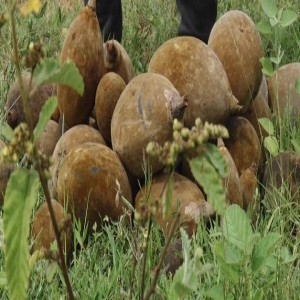
Tuesday Sep 21, 2021
Proper handling of baobab fruits at harvest (Summary)
Tuesday Sep 21, 2021
Tuesday Sep 21, 2021
Baobab fruit juice made from the pulp is very healthy, and can be added to porridge and sauces. However, the quality of the pulp can be greatly affected if fruits are not handled well during and after harvest. When baobab pods are damaged and have splits in the shell, moisture and insects can easily get to the pulp and spoil it.
Download the full audio podcast in different languages at: www.accessagriculture.org
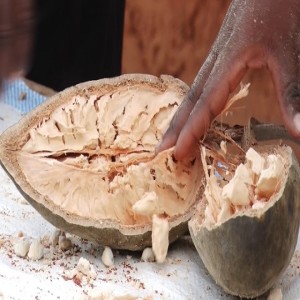
Monday Sep 20, 2021
Enriching porridge with baobab juice (Summary)
Monday Sep 20, 2021
Monday Sep 20, 2021
Compared to other foods, baobab pulp contains very high levels of minerals such as calcium, iron and magnesium as well as vitamin C. Furthermore, it is rich in fibre. It is good for human health and reduces the risk of diseases. Due to these properties, baobab fruits are often called a super food.
Download the full audio podcast in different languages at: www.accessagriculture.org
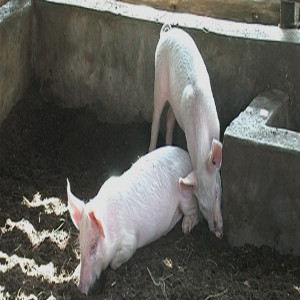
Friday Sep 17, 2021
Housing for pigs (Summary)
Friday Sep 17, 2021
Friday Sep 17, 2021
Farmers in Uganda started taking care of pigs in their sties because of problems with the pigs that were free roaming. Farmers would not know where the pigs had gone and what they had eaten or whether they had contracted any disease.
Download the full audio podcast in different languages at: www.accessagriculture.org
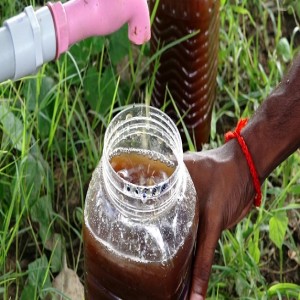
Thursday Sep 16, 2021
Hardening crabs in floating cages (Summary)
Thursday Sep 16, 2021
Thursday Sep 16, 2021
You can make a cage from bamboo to contain the crabs. Soft crabs must be separated so they do not fight and damage each other. Give each crab half of a tiny fish per day. If the crab has not eaten its food, it is sick and must be removed. In 10 to 15 days, the crabs will have a hard shell and can be sold.
Download the full audio podcast in different languages at: www.accessagriculture.org
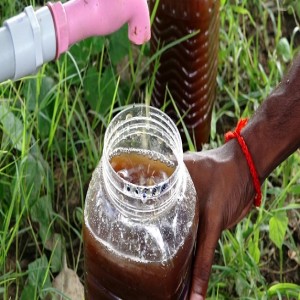
Wednesday Sep 15, 2021
Vermiwash: an organic tonic for crops (Summary)
Wednesday Sep 15, 2021
Wednesday Sep 15, 2021
Vermiwash is the liquid that is collected after water passes through compost made by earthworms. It is rich in plant growth hormones, micro-nutrients, and major nutrients like nitrogen, phosphorous and potassium.
Download the full audio podcast in different languages at: www.accessagriculture.org
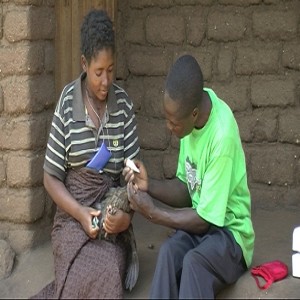
Tuesday Sep 14, 2021
Management of Newcastle disease (Summary)
Tuesday Sep 14, 2021
Tuesday Sep 14, 2021
In this audio podcast, we will learn how to recognise Newcastle disease, and the signs, causes, prevention, control and management of this devastating disease.
Download the full audio podcast in different languages at: www.accessagriculture.org
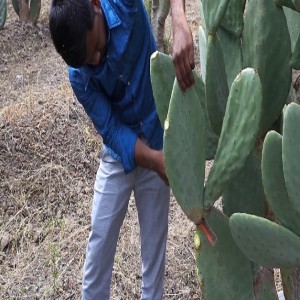
Monday Sep 13, 2021
Spineless cactus for fodder (Summary)
Monday Sep 13, 2021
Monday Sep 13, 2021
Cactus pads are rich in minerals like calcium, phosphorous and magnesium, and have moderate levels of protein and fibre. You can start harvesting cactus pads one year after planting and harvest pads every 4 months as per your needs. Cactus will give fodder for more than 20 years.
Download the full audio podcast in different languages at: www.accessagriculture.org
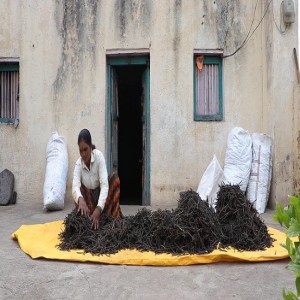
Friday Sep 10, 2021
Harvesting and storage of green gram (Summary)
Friday Sep 10, 2021
Friday Sep 10, 2021
Green gram or mung bean seed and grains need special care during harvesting and storage. Coat the seed with vegetable oil and store them in an earthen pot. Add neem leaves and dry red chillies. Cover the pot with a cotton cloth and a wire mesh to keep out rodents.
Download the full audio podcast in different languages at: www.accessagriculture.org
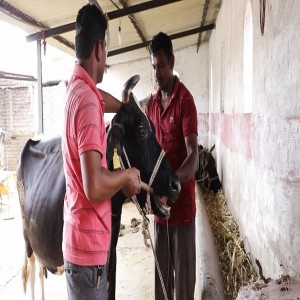
Thursday Sep 09, 2021
Natural ways to manage bloat in livestock (Summary)
Thursday Sep 09, 2021
Thursday Sep 09, 2021
Bloat is caused by eating too much wet grass during the rainy season. In the stomach, the wet grass ferments and releases gas which becomes like bubbles and cannot escape. It is also caused by a sudden change in diet or by eating overripe or fermented fruit, young sorghum leaves and vegetables like cabbage or cauliflower.
Download the full audio podcast in different languages at: www.accessagriculture.org
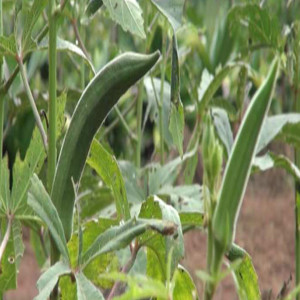
Wednesday Sep 08, 2021
Taking care of okra (Summary)
Wednesday Sep 08, 2021
Wednesday Sep 08, 2021
Too much drought can slow down growth and cause young fruits to fall. Water your okra regularly to avoid slowing down its growth. Get rid of weeds. Nourish okra crops by periodically applying a little compost, well-rotted manure or litter around the base of each okra plant.
Download the full audio podcast in different languages at: www.accessagriculture.org
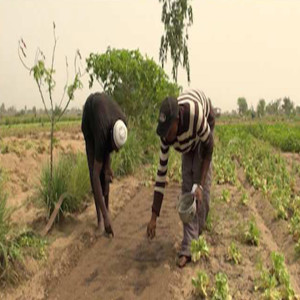
Tuesday Sep 07, 2021
Making a good okra seeding (Summary)
Tuesday Sep 07, 2021
Tuesday Sep 07, 2021
In Benin, producers tell us how to plant okra properly. Put no more than 2 to 3 seeds in each hole and plant at proper spacing to let in air and allow the plants to develop well.
Download the full audio podcast in different languages at: www.accessagriculture.org
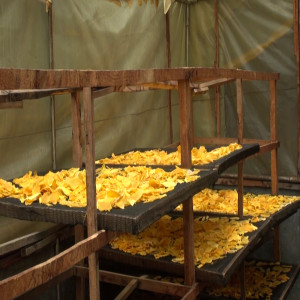
Monday Sep 06, 2021
Making mango crisps (Summary)
Monday Sep 06, 2021
Monday Sep 06, 2021
Dried mango crisps are a tasty and a healthy snack that can be sold even out of season at a good price.
Download the full audio podcast in different languages at: www.accessagriculture.org
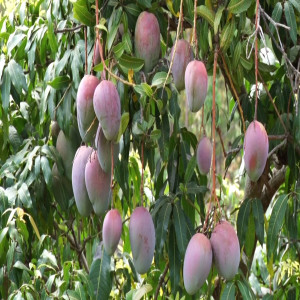
Friday Sep 03, 2021
Proper handling of mangoes at harvest (Summary)
Friday Sep 03, 2021
Friday Sep 03, 2021
If proper care is taken at harvest, losses can be minimized, consumers will have better quality fruit, and the farmers will earn more money.
Download the full audio podcast in different languages at: www.accessagriculture.org
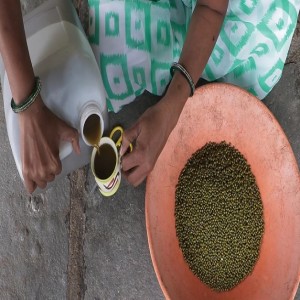
Thursday Sep 02, 2021
Better seed for green gram (Summary)
Thursday Sep 02, 2021
Thursday Sep 02, 2021
Coating seed with good microbes and organic fertilizer protects crops from diseases and gives them a healthy start. You can also prepare your own organic solution with cow dung, cow urine, lime, cow milk or yoghurt and water.
Download the full audio podcast in different languages at: www.accessagriculture.org
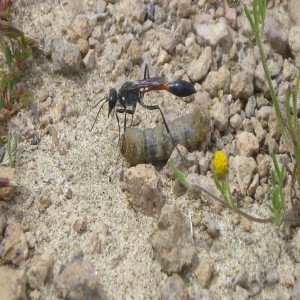
Wednesday Sep 01, 2021
The wasp that protects our crops (Summary)
Wednesday Sep 01, 2021
Wednesday Sep 01, 2021
By keeping live barriers with flowers around your fields, you help to protect the wasps and the other good insects. And it is easier to produce quinoa without insecticides while conserving our fertile soil.
Download the full audio podcast in different languages at: www.accessagriculture.org
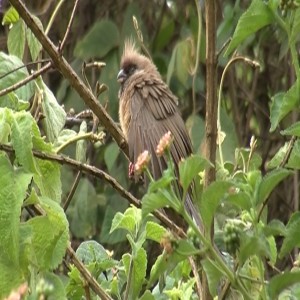
Tuesday Aug 31, 2021
Managing birds in climbing beans (Summary)
Tuesday Aug 31, 2021
Tuesday Aug 31, 2021
Birds learn quickly and will come back, so regularly change the way you scare birds. All farmers in your community should plant their bean crop within a period of two weeks so that the beans are all growing at the same time, so most of the crop survives. By having banana and flowering plants nearby your fields the birds will less disturb the beans.
Download the full audio podcast in different languages at: www.accessagriculture.org
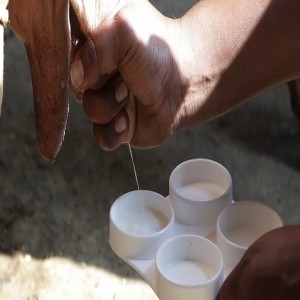
Monday Aug 30, 2021
Herbal medicines against mastitis (Summary)
Monday Aug 30, 2021
Monday Aug 30, 2021
Mastitis makes the teat painful, so cows do not want to get milked. If not treated soon, the other teats will also become affected and the udder may get damaged. When a cow has mastitis, her milk is not good to drink.
Download the full audio podcast in different languages at: www.accessagriculture.org
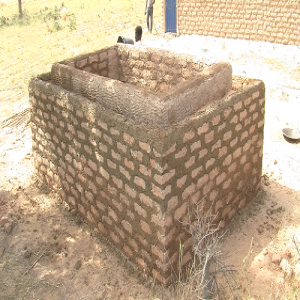
Friday Aug 27, 2021
Making a cooling chamber for tomatoes (Summary)
Friday Aug 27, 2021
Friday Aug 27, 2021
When you pick your tomatoes, if you want to keep them longer, you have to find a way of reducing the temperature. As availability of electricity at village level can be a problem, ways have to be found to lower the temperature of this fragile crop. Some farmers at Dambatta in Kano State, Nigeria have used local mud bricks to make a very effective cooling chamber.
Download the full audio podcast in different languages at: www.accessagriculture.org

Thursday Aug 26, 2021
Staggering production of tomatoes (Summary)
Thursday Aug 26, 2021
Thursday Aug 26, 2021
If you are growing tomatoes you need to make sure that you don’t just grow when everyone else is, or you will probably suffer from very low prices. Working in a group and staggering your production can provide a constant market supply of fresh tomatoes.
Download the full audio podcast in different languages at: www.accessagriculture.org
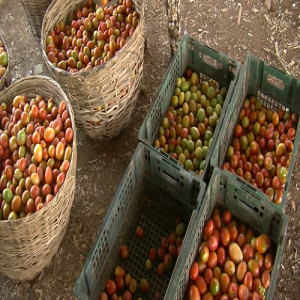
Wednesday Aug 25, 2021
Good handling of tomatoes (Summary)
Wednesday Aug 25, 2021
Wednesday Aug 25, 2021
As soon as you pick your tomatoes their quality can only ever decrease. The best you can do is to slow down the reduction of quality, by following some practices which reduce damage and harm. The key to getting good quality tomatoes to sell starts with the pickers. If they can avoid damaging the crop, we have a chance.
Download the full audio podcast in different languages at: www.accessagriculture.org
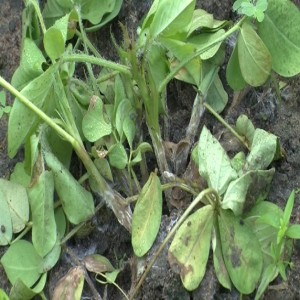
Tuesday Aug 24, 2021
Root and stem rot in groundnut (Summary)
Tuesday Aug 24, 2021
Tuesday Aug 24, 2021
Crop rotation, and the use of gypsum, herbal mixtures or beneficial fungi like Trichoderma can control root and stem rot diseases.
Download the full audio podcast in different languages at: www.accessagriculture.org
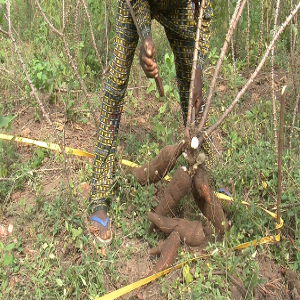
Monday Aug 23, 2021
How to calculate yield of cassava (Summary)
Monday Aug 23, 2021
Monday Aug 23, 2021
Cassava is a plant with valuable roots which are hidden below the soil. One of the main issues for cassava farmers is how do you estimate the value of your crop… but it is possible to work out the size of your cassava yield before harvest.
Download the full audio podcast in different languages at: www.accessagriculture.org
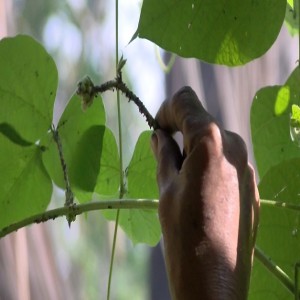
Friday Aug 20, 2021
Managing aphids in beans and vegetables (Summary)
Friday Aug 20, 2021
Friday Aug 20, 2021
You can easily control aphids by using some organic practices, such as sprinkling ash, spraying a neem solution or planting trap crops.
Download the full audio podcast in different languages at: www.accessagriculture.org
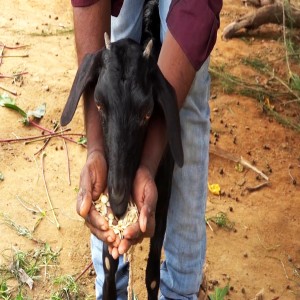
Thursday Aug 19, 2021
Deworming goats and sheep with herbal medicines (Summary)
Thursday Aug 19, 2021
Thursday Aug 19, 2021
In this audio podcast, we will learn from farmers in Southern India how internal worms spread to goats and sheep. We will also see how to prevent and cure the animals with a few simple methods.
Download the full audio podcast in different languages at: www.accessagriculture.org
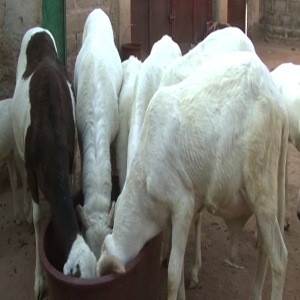
Wednesday Aug 18, 2021
Keeping sheep healthy (Summary)
Wednesday Aug 18, 2021
Wednesday Aug 18, 2021
A sick sheep does not grow fast and will sell at a low price because it is thin and the meat will be of poor quality. Some diseases such as PPR and pasteurellosis are mainly transmitted through inhalation and contaminated drinking water. Parasitic worms spread to healthy animals through unhygienic conditions in the shed or by grazing on contaminated pasture.
Download the full audio podcast in different languages at: www.accessagriculture.org

Tuesday Aug 17, 2021
Managing the mango seed weevil (Summary)
Tuesday Aug 17, 2021
Tuesday Aug 17, 2021
The best way to check if you have mango seed weevils is by using sticky bands. Put a sticky band around each tree trunk, at the upper end of the trunk before it branches. The best way to control mango seed weevils is to burn an aromatic mixture to smoke out the pest. Also regularly remove and destroy dropped fruits in your orchard.
Download the full audio podcast in different languages at: www.accessagriculture.org
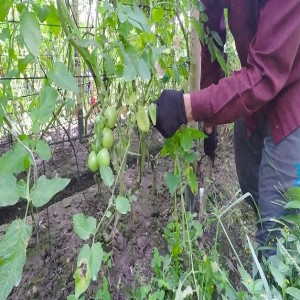
Monday Aug 16, 2021
Managing tomato late blight (Summary)
Monday Aug 16, 2021
Monday Aug 16, 2021
Late blight is caused by moulds that survive in the soil and in residues of crops that had the disease. As the disease spreads very fast, inspect your field every day. If you see sick plants, cut of the sick parts of the plant and burn the affected parts. Never put sick plant parts on your compost as the mould will continue to grow and spread to your field.
Download the full audio podcast in different languages at: www.accessagriculture.org
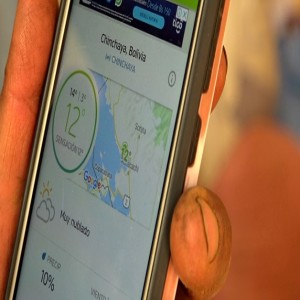
Friday Aug 13, 2021
Forecasting the weather with an app (Summary)
Friday Aug 13, 2021
Friday Aug 13, 2021
Weather Underground is the name of a weather app which is easy and free to download on your cell phone. The app makes weather forecasts every day for a week. The data is updated constantly if you have an Internet connection.
Download the full audio podcast in different languages at: www.accessagriculture.org
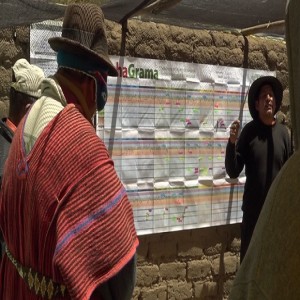
Thursday Aug 12, 2021
Recording the weather (Summary)
Thursday Aug 12, 2021
Thursday Aug 12, 2021
In a notebook, you can write down the predictions of the weather based on natural indicators, the actual daily weather, the farm activities and crop performance. This allows you to learn from year to year, share experiences with others and better plan for the future.
Download the full audio podcast in different languages at: www.accessagriculture.org
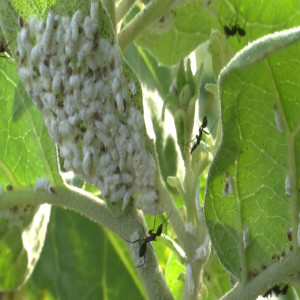
Wednesday Aug 11, 2021
Managing mealybugs in vegetables (Summary)
Wednesday Aug 11, 2021
Wednesday Aug 11, 2021
Unlike most botanical insecticides, the plants can take up neem extracts through their roots and leaves, spreading the material throughout the plant tissues. For this reason, neem can help control pests like leaf miners, which feed inside leaves and are normally not affected by sprays that only cover the outside of the plant.
Download the full audio podcast in different languages at: www.accessagriculture.org

Tuesday Aug 10, 2021
Neem seed kernel extract (Summary)
Tuesday Aug 10, 2021
Tuesday Aug 10, 2021
Unlike most botanical insecticides, the plants can take up neem extracts through their roots and leaves, spreading the material throughout the plant tissues. For this reason, neem can help control pests like leaf miners, which feed inside leaves and are normally not affected by sprays that only cover the outside of the plant.
Download the full audio podcast in different languages at: www.accessagriculture.org
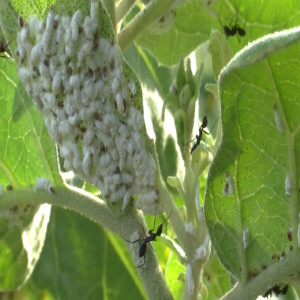
Monday Aug 09, 2021
Living windbreaks to protect the soil (Summary)
Monday Aug 09, 2021
Monday Aug 09, 2021
Live barriers are made up of lines of native grass, bushes and trees. The native plants are adapted to living with little water and they withstand the strong winds.
Download the full audio podcast in different languages at: www.accessagriculture.org
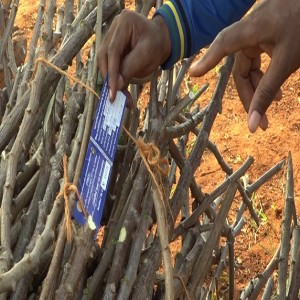
Friday Aug 06, 2021
Quality cassava planting material (Summary)
Friday Aug 06, 2021
Friday Aug 06, 2021
To produce quality cassava planting material, we need to: select a suitable site and prepare the land early, ensure good soil fertility, decide what varieties to grow, and properly handle the planting material.
Download the full audio podcast in different languages at: www.accessagriculture.org
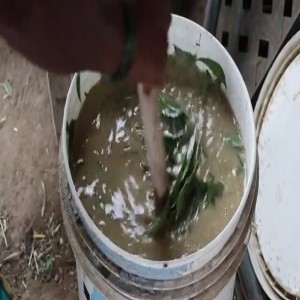
Thursday Aug 05, 2021
Good microbes for plants and soil (Summary)
Thursday Aug 05, 2021
Thursday Aug 05, 2021
In this audio podcast, we will learn about a solution that boosts the crop’s growth, and at the same time protects the crop from pests and diseases.
Download the full audio podcast in different languages at: www.accessagriculture.org
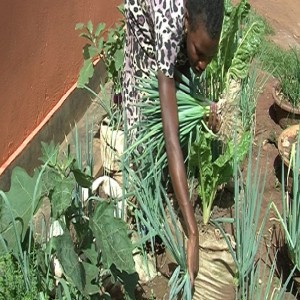
Wednesday Aug 04, 2021
Using sack mounds to grow vegetables (Summary)
Wednesday Aug 04, 2021
Wednesday Aug 04, 2021
The best compost for sack mounds is the one made using poultry manure and plant remains. If you use such compost, the sack mound will yield a lot of vegetables for a long time.
Download the full audio podcast in different languages at: www.accessagriculture.org
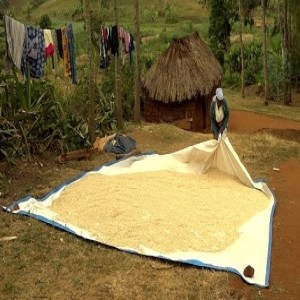
Tuesday Aug 03, 2021
Managing aflatoxins in maize during drying and storage (Summary)
Tuesday Aug 03, 2021
Tuesday Aug 03, 2021
As our health and the health of our animals are at stake, let us learn from experienced farmers in Tanzania how to properly dry and store our maize.
Download the full audio podcast in different languages at: www.accessagriculture.org
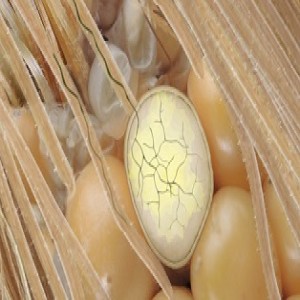
Monday Aug 02, 2021
Managing aflatoxins in maize before and during harvest (Summary)
Monday Aug 02, 2021
Monday Aug 02, 2021
By keeping your soil healthy and by planting early, your plants will be strong and less vulnerable to insects and moulds. Once the maize is dry, harvest within the next two weeks. Keep the healthy ears off the ground, otherwise moulds will get on your maize and damage it during storage. Burn all the bad ears. Never feed them to your animals.
Download the full audio podcast in different languages at: www.accessagriculture.org
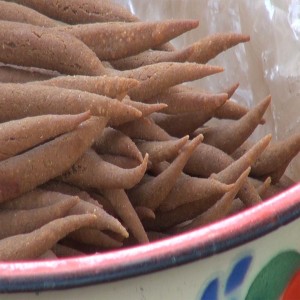
Friday Jul 30, 2021
Making groundnut oil and snacks (Summary)
Friday Jul 30, 2021
Friday Jul 30, 2021
Women in Benin tell us that there are three important things: select good groundnut varieties, follow good harvest and postharvest practices, and use good processing methods.
Download the full audio podcast in different languages at: www.accessagriculture.org
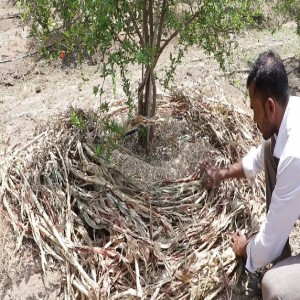
Thursday Jul 29, 2021
Mulch for a better soil and crop (Summary)
Thursday Jul 29, 2021
Thursday Jul 29, 2021
You can make mulch from any locally available, dry plant material such as grass, or straw. Mulching is easy. And above all, it helps to save you water, time and labour whilst at the same enriching your soil and giving you a better harvest.
Download the full audio podcast in different languages at: www.accessagriculture.org
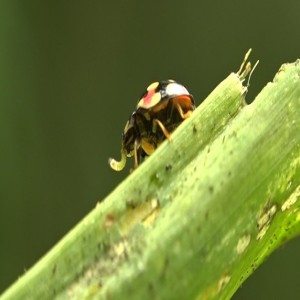
Wednesday Jul 28, 2021
Killing fall armyworms naturally (Summary)
Wednesday Jul 28, 2021
Wednesday Jul 28, 2021
By making best use of farmers’ friends and local plants on the farm, nature will help you control the fall armyworm and reward you with a good and healthy crop.
Download the full audio podcast in different languages at: www.accessagriculture.org
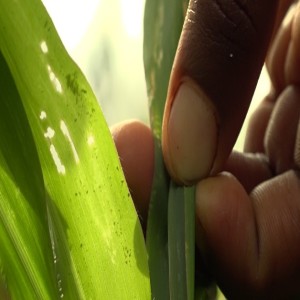
Tuesday Jul 27, 2021
Scouting for fall armyworms (Summary)
Tuesday Jul 27, 2021
Tuesday Jul 27, 2021
Spraying pesticides is expensive and usually cannot control this pest. Visit your field twice a week for the first 6 weeks and kill any egg masses and young armyworms by hand. It is important to do scouting because without it, you will not have a harvest at the end of the day.
Download the full audio podcast in different languages at: www.accessagriculture.org
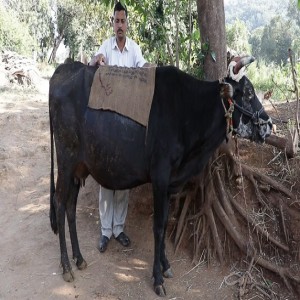
Monday Jul 26, 2021
Herbal medicine against fever in livestock (Summary)
Monday Jul 26, 2021
Monday Jul 26, 2021
In this audio podcast, we will learn what causes fever, how to recognise an animal with fever and how to handle a simple case of fever on your farm using a few simple tips.
Download the full audio podcast in different languages at: www.accessagriculture.org
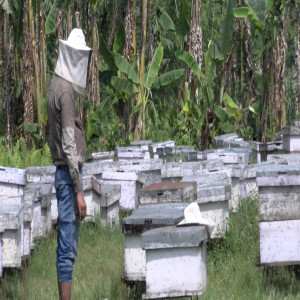
Friday Jul 16, 2021
Making a modern beehive (Summary)
Friday Jul 16, 2021
Friday Jul 16, 2021
In traditional hives, the bees make their own wax combs that are often attached to each other, so harvesting the honey is difficult. Honey can be extracted only two or three times a year from a traditional beehive. A modern beehive produces double to triple the volume of honey compared to a traditional hive.
Download the full audio podcast in different languages at: www.accessagriculture.org

Friday Jul 16, 2021
Managing black rot in cabbage (Summary)
Friday Jul 16, 2021
Friday Jul 16, 2021
Most farmers confuse black rot disease with downey mildew. Whereas mildew starts as purplish irregular spots on the leaves, black rot starts as small, yellow-brown, V-shaped areas at the leaf margins.
Download the full audio podcast in different languages at: www.accessagriculture.org
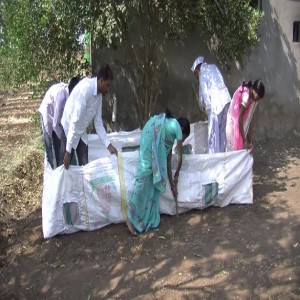
Monday Jun 21, 2021
Making a vermicompost bed (Summary)
Monday Jun 21, 2021
Monday Jun 21, 2021
With empty fertilizer bags you can sew a container. Place layers of decomposable material in the container and water it. Put the earthworms in after one week. Cover the top of the bed with gunny bags and water it regularly. Make sure the compost is shaded from direct sunlight.
Download the full audio podcast in different languages at: www.accessagriculture.org
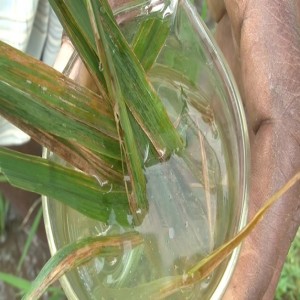
Monday Jun 21, 2021
Managing bacterial leaf blight in rice (Summary)
Monday Jun 21, 2021
Monday Jun 21, 2021
Farmers in India tell how the disease first appears in the leaf tip. Finally, the plant dries up. Non-chemical methods can be used to control this disease.
Download the full audio podcast in different languages at: www.accessagriculture.org
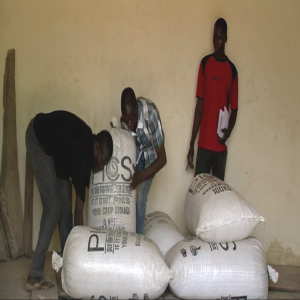
Friday Jun 18, 2021
Storing and managing maize in a warehouse (Summary)
Friday Jun 18, 2021
Friday Jun 18, 2021
Storing and managing stock in a warehouse involves three important steps. We should first prepare the warehouse, then store your products on pallets and third, follow and manage the stock in the warehouse.
Download the full audio podcast in different languages at: www.accessagriculture.org
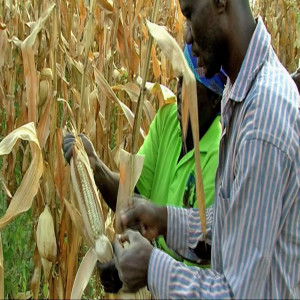
Friday Jun 18, 2021
Harvesting maize in a good way (Summary)
Friday Jun 18, 2021
Friday Jun 18, 2021
Your maize is mature when the leaves and the husks start to dry and turn yellow. Start harvesting improved varieties first and end with local varieties which are more resistant to pest attacks. Dehusk your maize in the field to avoid bringing pests to your home. Properly sort your maize in the field, burn the cobs that have been attacked and store the healthy ones.
Download the full audio podcast in different languages at: www.accessagriculture.org
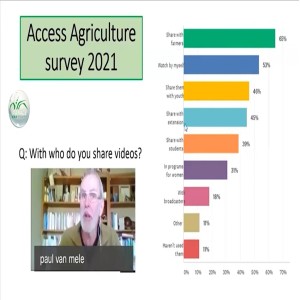
Friday Jun 04, 2021
Digital Extension Systems: Presentation by Dr Paul Van Mele
Friday Jun 04, 2021
Friday Jun 04, 2021
Dr Paul Van Mele, Access Agriculture Director for International Development, speaking on "Digital Extension Systems" at the MANAGE International Conference on “Agricultural Extension and Advisory Services: Innovations to Impact”, 25-27 February 2021. The National Institute of Agricultural Extension Management (MANAGE) is an autonomous organisation of the Ministry of Agriculture & Farmers’ Welfare, Government of India, Hyderabad, India.
Watch the presentation on EcoAgtube: https://tinyurl.com/PaulVanMele
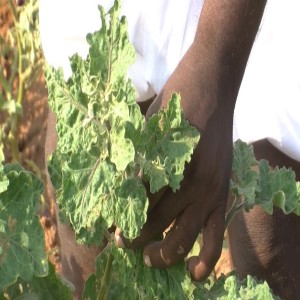
Friday May 14, 2021
Managing tomato leaf curl virus (Summary)
Friday May 14, 2021
Friday May 14, 2021
Tomato leaf curl cannot be cured by any product. The disease is spread by whiteflies. The best way to control the disease is through prevention. A net house can protect your nursery. A border of cereals around your vegetable field helps keep whiteflies out. Farmers in southern India tell us yellow sticky traps, natural pesticides and various other methods.
Download the full audio podcast in different languages at: www.accessagriculture.org
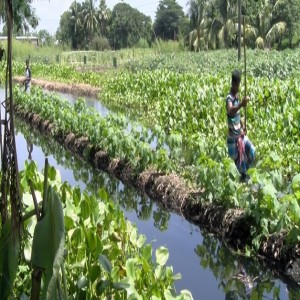
Friday May 14, 2021
Floating vegetable gardens (Summary)
Friday May 14, 2021
Friday May 14, 2021
As our land remains under water during the rainy season, our ancestors were already thinking of ways to produce crops in order to survive. They invented the floating garden by using crop residues. We do not need any chemical fertilizers or pesticides, because the floating bed is fertile by nature.
Download the full audio podcast in different languages at: www.accessagriculture.org
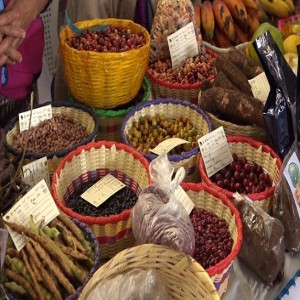
Friday May 14, 2021
Farmers' rights to seed: experiences from Guatemala (Summary)
Friday May 14, 2021
Friday May 14, 2021
We farmers, men and women, have the right to sell our seeds, and to conserve and exchange them. If they would forbid us from marketing or selling our potato seed, this would simply end our lives, because that is what we depend on.
Download the full audio podcast in different languages at: www.accessagriculture.org
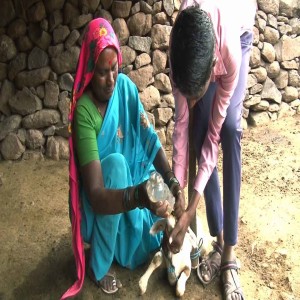
Thursday May 13, 2021
Herbal treatment for diarrhoea (Summary)
Thursday May 13, 2021
Thursday May 13, 2021
Keeping healthy livestock is a tough task because animals fall sick easily. Many people spend lots of money on medicine to treat their animals. In this audio podcast we will see how to prevent animals from getting diarrhoea and we will also learn how to treat sick animals with herbal medicine.
Download the full audio podcast in different languages at: www.accessagriculture.org
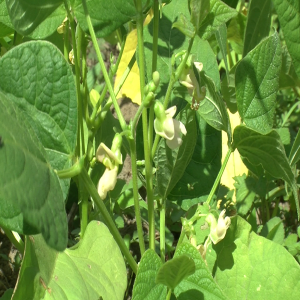
Thursday May 13, 2021
Conserving bean leaf vegetables (Summary)
Thursday May 13, 2021
Thursday May 13, 2021
Bean leaves are rich in proteins and vitamins. To have them available during the dry season, you can dry and store them.
Download the full audio podcast in different languages at: www.accessagriculture.org
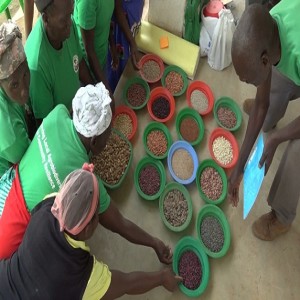
Thursday May 13, 2021
Farmers' rights to seed - Malawi (Summary)
Thursday May 13, 2021
Thursday May 13, 2021
For centuries farmers all over the world have been the guardians of crop seed and the breeders of new varieties. Policy-makers often find it challenging to recognize farmer’s ancient rights to keep and grow their own seed in the face of commercial varieties. But farmers are increasingly aware of their rights and the importance of their own varieties.
Download the full audio podcast in different languages at: www.accessagriculture.org
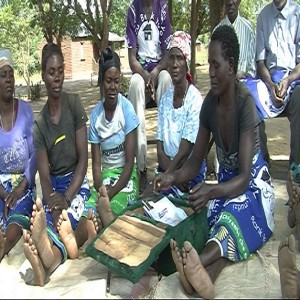
Wednesday May 12, 2021
Village savings and loan associations (Summary)
Wednesday May 12, 2021
Wednesday May 12, 2021
From the moment a member has saved a certain amount, he or she can start borrowing money to run any kind of business. By saving money together as a group, we can help small businesses to flourish and help each other out in the village.
Download the full audio podcast in different languages at: www.accessagriculture.org
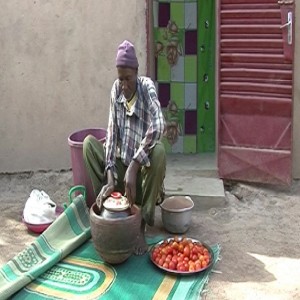
Wednesday May 12, 2021
Storing fresh and dried tomatoes (Summary)
Wednesday May 12, 2021
Wednesday May 12, 2021
You can store fresh tomatoes in a local fridge for a few weeks. A local fridge consists of two earthen pots, placed one inside the other and separated with sand. In addition to storing fresh tomatoes, they can also be dried and used any time. Dried tomatoes can be stored for a year.
Download the full audio podcast in different languages at: www.accessagriculture.org
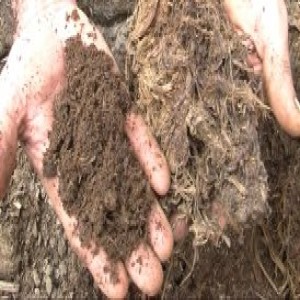
Wednesday May 12, 2021
Compost from rice straw (Summary)
Wednesday May 12, 2021
Wednesday May 12, 2021
Small scale farmers can struggle to keep their soil healthy, and often resort to buying fertilisers to improve their yield, but with a bit of extra work to make compost, yield can be increased naturally and the soil improved year by year. To turn your rice straw into compost, requires a series of steps that control and accelerate the decomposition by microorganisms. With the right conditions, your compost will be ready in 4 months.
Download the full audio podcast in different languages at: www.accessagriculture.org
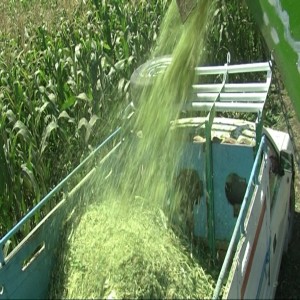
Tuesday May 11, 2021
Silage from maize (Summary)
Tuesday May 11, 2021
Tuesday May 11, 2021
Without any air, finely chopped green maize ferments without rotting. This is because micro-organisms digest the sugars in the fodder and produce lactic acid, which acts as a natural preservative. The key to making silage is to create the right conditions for a good fermentation.
Download the full audio podcast in different languages at: www.accessagriculture.org
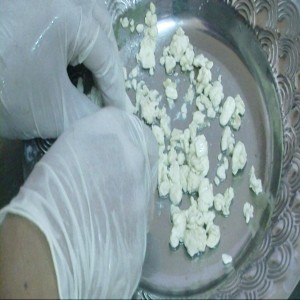
Tuesday May 11, 2021
Making rennet (Summary)
Tuesday May 11, 2021
Tuesday May 11, 2021
The key ingredient to making cheese is rennet. This triggers the fats in the milk to bind together as curds, and the rest of the liquid runs off as whey. Whilst you can buy ready-made commercial rennet in liquid or powder form, in Egypt, rural women prefer to use natural rennet from the curds found in a calf’s stomach.
Download the full audio podcast in different languages at: www.accessagriculture.org
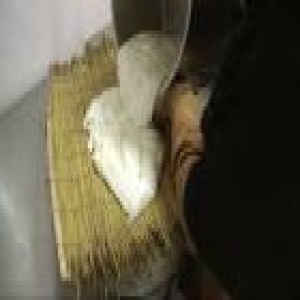
Tuesday May 11, 2021
Making fresh cheese (Summary)
Tuesday May 11, 2021
Tuesday May 11, 2021
A soft fresh cheese can be made and ready for consumption in less than 1 hour and, and is easily made with some basic kitchen equipment, as we will learn from rural women from the village of Sakkara in Egypt.
Download the full audio podcast in different languages at: www.accessagriculture.org
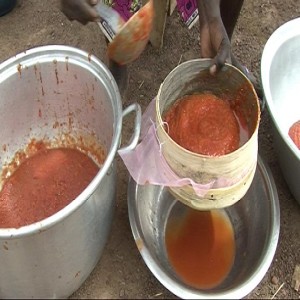
Friday Apr 09, 2021
Tomato concentrate and juice (Summary)
Friday Apr 09, 2021
Friday Apr 09, 2021
During the lean season, tomatoes become very scarce and consumers buy canned tomatoes at high prices or no longer eat tomatoes. But by processing tomatoes into concentrate, you can use it for one year. And tomato juice can be used for 2 to 3 weeks.
Download the full audio podcast in different languages at: www.accessagriculture.org
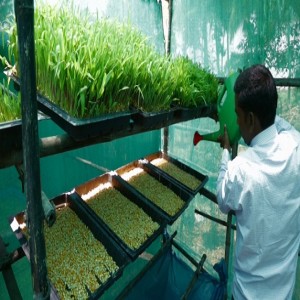
Friday Apr 09, 2021
Hydroponic fodder (Summary)
Friday Apr 09, 2021
Friday Apr 09, 2021
Saving water, minimum land use, less labour, faster growth, giving a high yield of highly nourishing fodder that will improve your livestock. These are the key benefits in hydroponic fodder production.
Download the full audio podcast in different languages at: www.accessagriculture.org
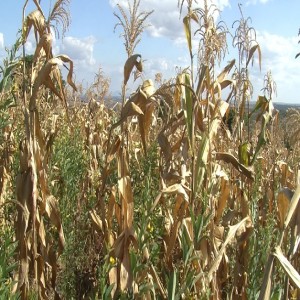
Thursday Mar 25, 2021
Intercropping maize with pigeon peas (Summary)
Thursday Mar 25, 2021
Thursday Mar 25, 2021
Legumes like pigeon peas take nitrogen from the air and deposit it into the soil. When pigeon peas are intercropped the root nodules release valuable nitrogen to the other crop.
Any roots, leaves or stems of the pigeon pea plant that stay in the field also help to improve the soil.
Download the full audio podcast in different languages at: www.accessagriculture.org
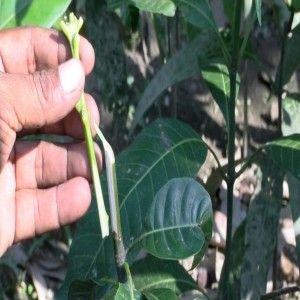
Thursday Mar 25, 2021
Grafting mango seedlings (Summary)
Thursday Mar 25, 2021
Thursday Mar 25, 2021
With grafting, a young shoot from a preferred mango variety is attached to a seedling. The seedling will develop the root and base of the tree. This is called the rootstock. The young shoot that is grafted onto the rootstock is called the scion. This will develop into the canopy.
Download the full audio podcast in different languages at: www.accessagriculture.org
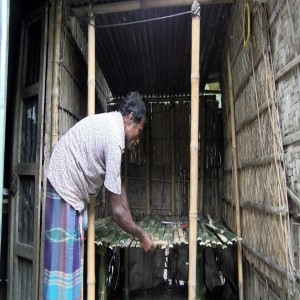
Wednesday Mar 24, 2021
Making a raised platform for sheep and goats (Summary)
Wednesday Mar 24, 2021
Wednesday Mar 24, 2021
In traditional sheds, sheep and goats are often kept on the ground. The animals are in direct contact with their urine and droppings. Because of poor hygiene many animals get sick. You can easily make a raised platform inside your existing shed to solve these problems.
Download the full audio podcast in different languages at: www.accessagriculture.org
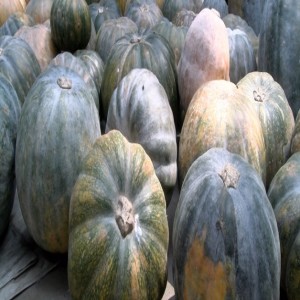
Wednesday Mar 24, 2021
Sorting and storing pumpkins (Summary)
Wednesday Mar 24, 2021
Wednesday Mar 24, 2021
Farmers selling pumpkins right after harvest get a low price because there are so many.
They can sell them at a better price during the off-season by storing them.
Download the full audio podcast in different languages at: www.accessagriculture.org
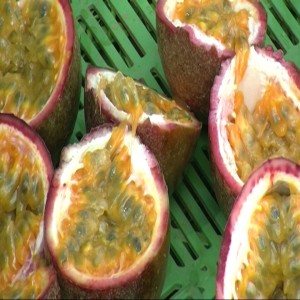
Wednesday Mar 24, 2021
Making a condiment from soya beans (Summary)
Wednesday Mar 24, 2021
Wednesday Mar 24, 2021
All across the world, people add condiments to their cooking to make it taste better. In West Africa, many sauces are prepared using a condiment made with seeds from the Néré tree, also known as the African locust bean. In Mali, this condiment is called soumbala. Due to excessive tree cutting in the Sahel region, soumbala has become a scarce and expensive product. Although stock cubes are often used, some women in Mali have developed a good alternative by making soumbala from soya beans.
Download the full audio podcast in different languages at: www.accessagriculture.org
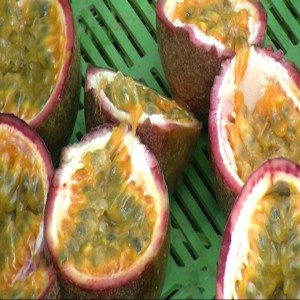
Thursday Mar 11, 2021
Staking and pruning passion fruit (Summary)
Thursday Mar 11, 2021
Thursday Mar 11, 2021
A well-managed passion fruit orchard can provide farmers with some good money throughout the year. In this audio podcast, we will learn how to stake passion fruit plants and prune the vines systematically so as to get good yields.
Download the full audio podcast in different languages at: www.accessagriculture.org
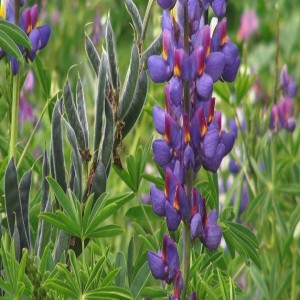
Wednesday Mar 10, 2021
Growing lupin without disease (Summary)
Wednesday Mar 10, 2021
Wednesday Mar 10, 2021
Lupin can be grown in high or cold areas. Lupin is healthy food, rich in proteins, and good for the soil. In this audio podcast, farmers in Bolivia tell how to keep your field free from anthracnose disease.
Download the full audio podcast in different languages at: www.accessagriculture.org
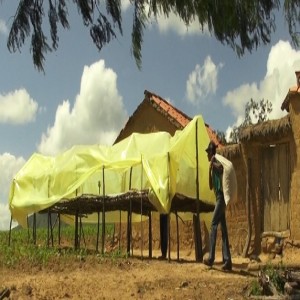
Tuesday Feb 09, 2021
Managing aflatoxins in groundnuts during drying and storage (Summary)
Tuesday Feb 09, 2021
Tuesday Feb 09, 2021
Certain moulds grow on groundnut, maize and other foods. These moulds produce a poison called aflatoxin. To have healthy groundnuts it is important to care for the groundnut during its whole growth, but especially during drying and storage.
Download the full audio podcast in different languages at: www.accessagriculture.org
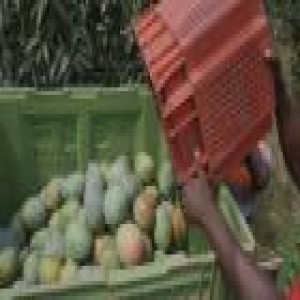
Tuesday Feb 09, 2021
Selective harvest of mangoes (Summary)
Tuesday Feb 09, 2021
Tuesday Feb 09, 2021
Harvest is a very crucial part of your work as a farmer. If you get it right you will be rewarded with higher yields and better fruit quality – which translates to more income. In this audio podcast, we will explain to you what you need to do to improve your harvesting practice.
Download the full audio podcast in different languages at: www.accessagriculture.org
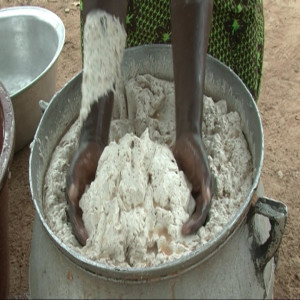
Friday Jan 22, 2021
Making better shea butter (Summary)
Friday Jan 22, 2021
Friday Jan 22, 2021
Shea butter is used a lot in cooking, traditional medicine and cosmetic products. However traditional extraction of shea butter doesn’t follow required hygiene rules, this results in unsafe butter that can cause illness in consumers. In this audio podcast, we will learn how women in the South of Mali have improved the production of shea butter.
Download the full audio podcast in different languages at: www.accessagriculture.org
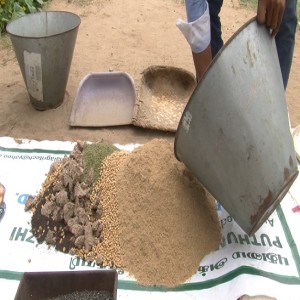
Friday Jan 22, 2021
Preparing low-cost concentrate feed (Summary)
Friday Jan 22, 2021
Friday Jan 22, 2021
By making a base mix that can be fed to all animals, you save time and money. Two thirds of the mix is made from grains, like paddy, maize, sorghum and millet. One third of the mix should be rich in protein and fat. Mill the base mix into a coarse flour. Depending on the type of animal, you then need to add a few other ingredients.
Download the full audio podcast in different languages at: www.accessagriculture.org
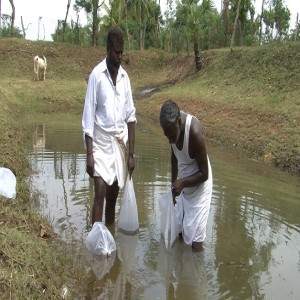
Monday Jan 18, 2021
Stocking fingerlings in a nursery pond (Summary)
Monday Jan 18, 2021
Monday Jan 18, 2021
Fingerlings are extremely delicate. They must be transported, kept and fed well if you want a good harvest. If not, you may lose all the money you invested. Using a nursery pond you can easily grow quality fingerlings to make more profit.
Download the full audio podcast in different languages at: www.accessagriculture.org
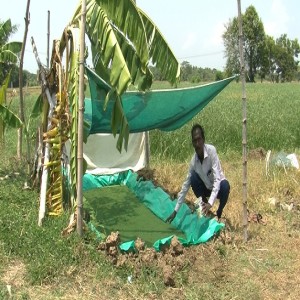
Monday Jan 18, 2021
Growing azolla for feed (Summary)
Monday Jan 18, 2021
Monday Jan 18, 2021
Azolla fixes nitrogen from the air and stores this in its leaves. Azolla is richer in protein, vitamins and minerals than grains and most green fodder. Because of this and because azolla grows fast and easily in a small area, it makes an ideal addition to feed.
Download the full audio podcast in different languages at: www.accessagriculture.org
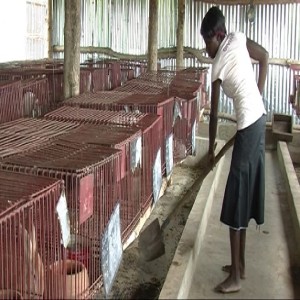
Thursday Jan 14, 2021
Preventing diseases in rabbits (Summary)
Thursday Jan 14, 2021
Thursday Jan 14, 2021
Coccidiosis and colibacillosis are the most dangerous diseases in rabbits because they are highly contagious. Veterinary products cannot cure rabbits that have been infected with these disease. Luckily, they can be prevented, as we will listen in this audio podcast.
Download the full audio podcast in different languages at: www.accessagriculture.org
